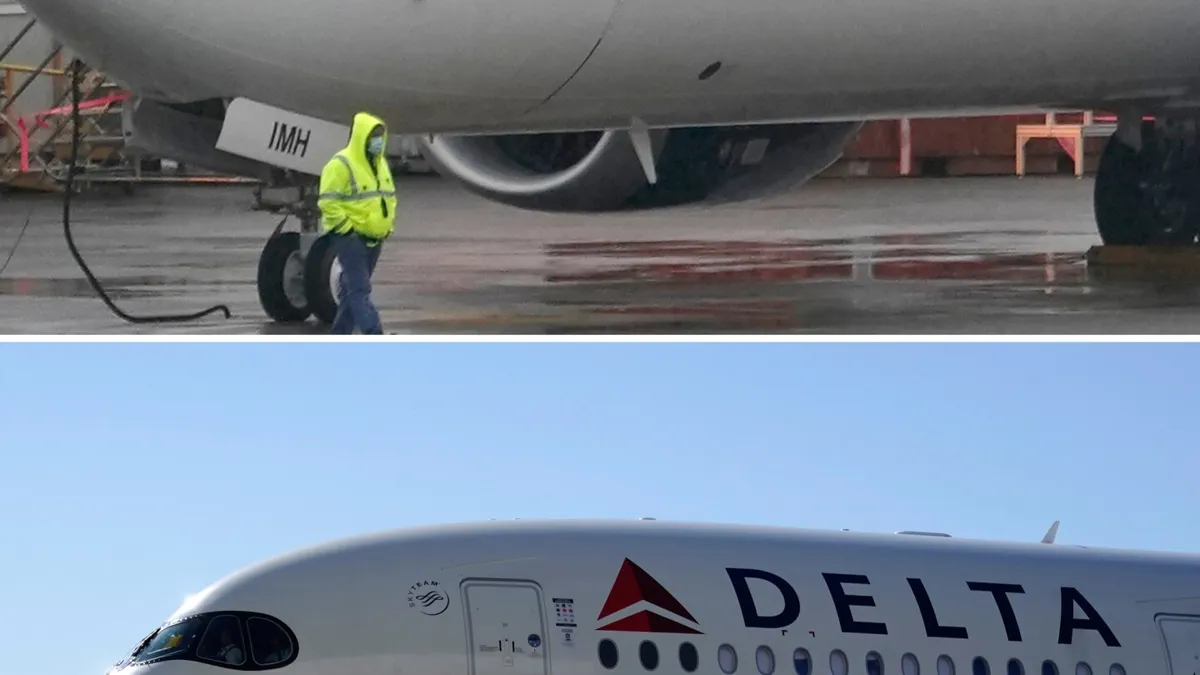
In a significant move, U.S. Transportation Secretary Sean Duffy is advancing his plans to dismantle the longstanding partnership between Delta Air Lines and Aeromexico. This decision stems from Duffy's concerns regarding the fairness of Mexico's treatment of U.S. airlines. On Tuesday, he announced that the Transportation Department would revoke the antitrust immunity that has permitted both airlines to collaborate on pricing, scheduling, and revenue sharing since 2016.
Duffy's rationale for this decision centers on the belief that Mexico has provided its domestic airlines with an unfair edge. He pointed out that several years ago, the Mexican government imposed restrictions on passenger and cargo flights into Mexico City that disproportionately benefited local airlines. This situation has prompted Duffy to question the viability of maintaining the partnership between Delta and Aeromexico under these circumstances.
The ongoing airline dispute is part of a larger trade conflict between the United States and Mexico, which has been exacerbated by President Donald Trump’s tariffs and ongoing concerns regarding border security. Duffy is particularly focused on whether Mexico's directive to relocate airlines from the main Benito Juarez International Airport to the newer Felipe Angeles International Airport—located over 30 miles away—violates existing trade agreements.
Before the shift mandated by the Mexican government in 2022, major international airlines had avoided Felipe Angeles due to its distance from the city center, making travel inconvenient for passengers. Duffy has criticized the Mexican government for reducing slots at Benito Juarez to accommodate construction that he claims has yet to commence. “Empty promises mean nothing. After years of taking advantage of the U.S. and our carriers, we need to see definitive action by Mexico that levels the playing field and restores fairness,” Duffy stated.
In response to Duffy's announcement, Mexican President Claudia Sheinbaum defended the relocation of cargo operations as a technical decision aimed at alleviating congestion at the older airport. She emphasized that the changes were not intended to discriminate against U.S. airlines but were necessary for operational safety. “There is no reason to impose any sanctions related to this matter,” she declared, acknowledging that while some U.S. companies expressed concern, they eventually adapted to the new operational landscape.
Both Delta and Aeromexico have expressed their disappointment regarding Duffy’s decision but have yet to determine whether they will challenge it legally. They argue that they should not bear the consequences of the Mexican government’s actions. Regulatory filings from the airlines suggest that the dissolution of their partnership could negatively impact the economies of both nations, as Mexico is the most popular foreign destination for Americans, with over 40 million passengers traveling there last year.
In 2022, Delta and Aeromexico facilitated more than 30,000 flights between the United States and Mexico, with Delta warning that the decision could significantly harm U.S. jobs, communities, and travelers. Aeromexico echoed this sentiment, noting that the alliance has enhanced connectivity, tourism, and consumer benefits in both countries.
The two airlines anticipate that the loss of direct flights could deter over 140,000 American tourists and nearly 90,000 Mexican tourists from visiting each other’s countries, ultimately harming local economies through decreased spending. Despite the regulatory challenges, Delta and Aeromexico plan to continue their cooperation, albeit with limitations on their collaboration.
Notably, competing airlines such as Viva and Volaris have successfully expanded their operations at Benito Juarez airport following the demise of Interjet during the pandemic, demonstrating that competition in the market remains robust even amidst these changes. Duffy's order to dissolve the partnership is set to take effect in January, but until then, there will be no immediate alterations to flights or loyalty programs for the airlines involved.